The Twin
21/04/12 19:30
Gerbrand Bakker, The Twin, Translated front he Dutch by David Colmer (New York: Archipelago Books, 2010).
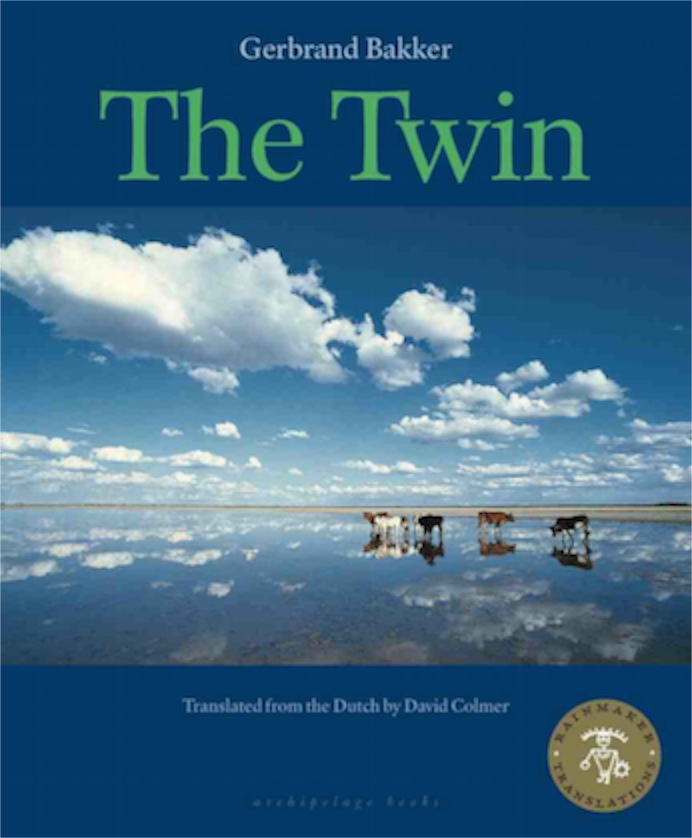
The story is the journey of a twin told from the perspective of his middle age. His father is nearing the end of his life. His brother was killed years ago in an accident. His mother has died. The girlfriend of his brother has returned into his life and he takes on the care of her son for a while. There are hints about his sexuality, but no overt stories. By the end of the book, the reader reaches the conclusion that is he likely gay, but that is hardly the theme of the book.
Bakker is a masterful story teller and the characters haunt. I can see why it won the international Impac Dublin Literary Award. The book sticks with you long after you have finished reading.
Hope: A Tragedy
14/04/12 11:07
Shalom Auslander: Hope: A Tragedy (New York: Beaverhead Books, 2012).
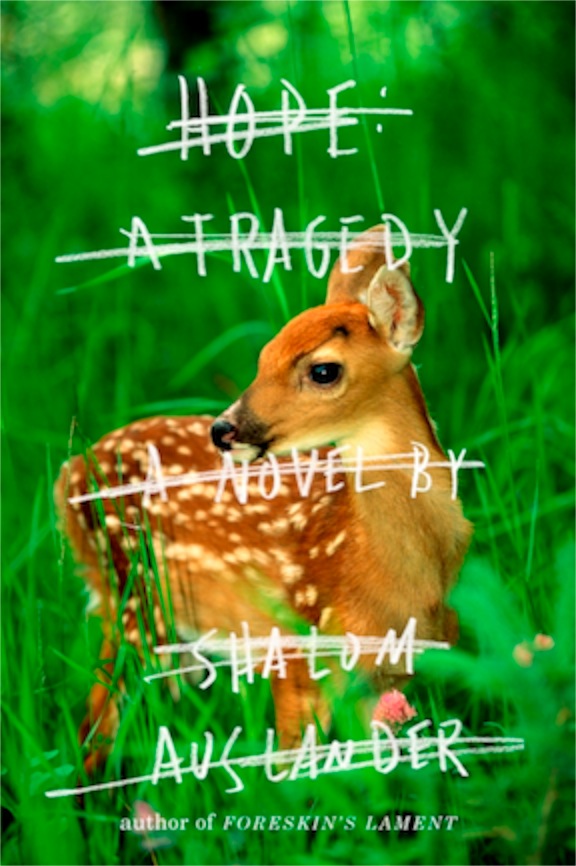
The theme indicated in the title carries throughout the book. Hope can be the reason for tragedy. It can be the source of amazing cruelty. People who expect the world to change often try to make it change in ways that create enormous suffering for others. The unintended consequences of hope are often tragic.
Auslander doesn’t convince anyone. But he certainly entrains us with a fun story.
The Paris Wife
11/04/12 20:01
Paul McLain, The Paris Wife: A Novel (New York: Ballantine, 2011).
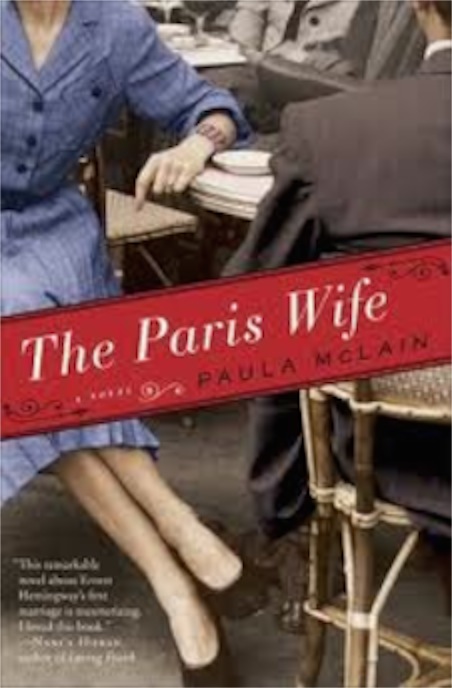
The book is enjoyable and wonderfully written. I think it was Elie Wiesel who once said, “Sometimes in order to tell the truth, you have to tell a story. McLain has told us a wonderful story. We thought we already knew the story. And that is where the writing must have been tricky for McLain. She had to balance what we already know with details that only Hadley could have known, except they weren’t known by anyone - they are the product of a brilliant imagination.
Hemingway fan or not, this is a book worth reading.
IQ of 63 - So What!
11/04/12 19:54
Ben D. Anderson, IQ of 63 - So What! Going Beyond Everybody Else’s Expectations (St. Cloud, MN: Sentinal, 2008).
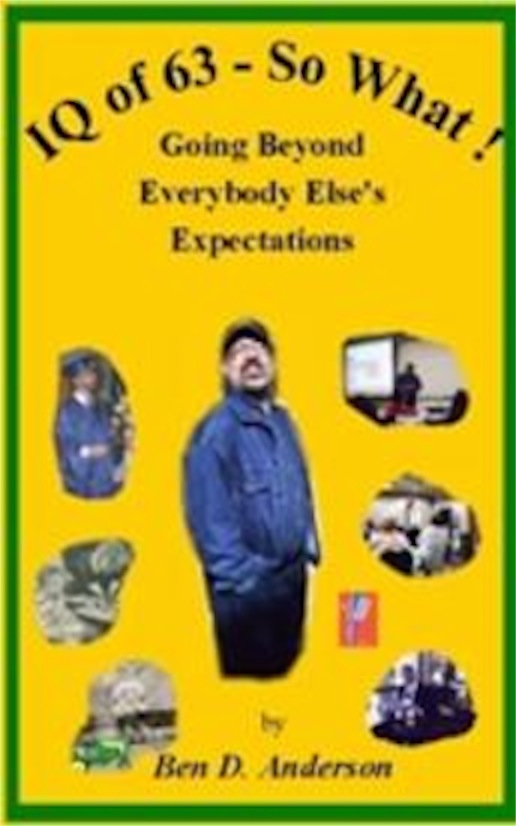
When I first started working for human rights with people with disabilities, I thought that perhaps I would have to speak for those who cannot speak for themselves. What I have discovered is that others do not need me to speak for them. They need me to listen carefully. Ben Anderson is a wonderful advocate for all persons with disabilities - and for those of us who are “temporarily abled” as well.
Knowing that we are all just one accident or illness away from a disability, this book is an inspiring read for all.
Pale Blue Dot
11/04/12 19:45
Carl Sagan, Pale Blue Dot: A Vision of the Human Future in Space (New York: Ballantine, 1994)
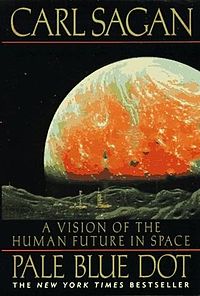
And, Sagan is more religious than he admits. He is hopelessly romantic. How else can you explain the amount of effort he put into creating a soundtrack to travel with the Voyager spacecraft on their journey out of our solar system?
He is a good writer. And he has, in his descriptions of the universe, captured some of the awe and wonder that makes it seem beautiful. His speculations about how future generations will look upon the universe are speculative, but fun speculations. As to the necessity of settlement of other worlds, he didn’t quite make his case, I fear, but the argument is at least cogent.
The book is a good read, especially for someone who enjoys philosophy. There is something genuinely amazing about a cosmology in this time of understanding how vast the cosmos really is.
God is Red
11/04/12 19:35
Vine Deloria Jr., God is Red: A Native View of Religion, (Golden, CO: Fulcrum Publishing, 1973; 30th Anniversary Edition, 2003).
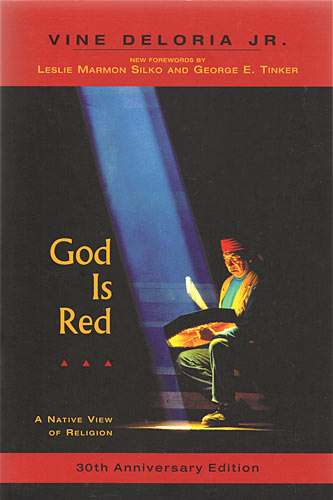
Of course the book reveals that some of the subjects about which he had some knowledge were not fully explored. He knew, but was not an expert on many topics. His characterization of Christians as being concerned with history over space and Native Americans as concerned with sacred place over time is an exaggeration and doesn’t hold up in practice. If places weren’t sacred to more than one group of people, conflict might not be as intense. His exploration of “Natural” and “Hybrid” peoples is based on pseduo-science that has been proven to be inaccurate. His anger is a bit misplaced in today’s world.
Still there is much that he reveals about Christianity that is true. There are parts of our identity that are accurately assessed. And he does offer a perspective that is helpful in understanding some of the tensions that characterize the people of South Dakota today.
The fresh discovery of this reading however, ended up being a disappointment. I had previously believed that Vine Deloria Jr. was an expert on Lakota Spirituality. I now realize that he is not. His book reveals very little understanding of native religion. Perhaps the paternalistic cultural and religious impositions of the missionaries took so much away from native people that Vine Deloria Jr. simply didn’t know the native ways of religion.
He is a brilliant writer. Not many books merit repeated reading. This one does.
Hot Pink
04/04/12 17:22
Adam Levin, Hot Pink, (San Francisco: McSweeney’s, 2011).
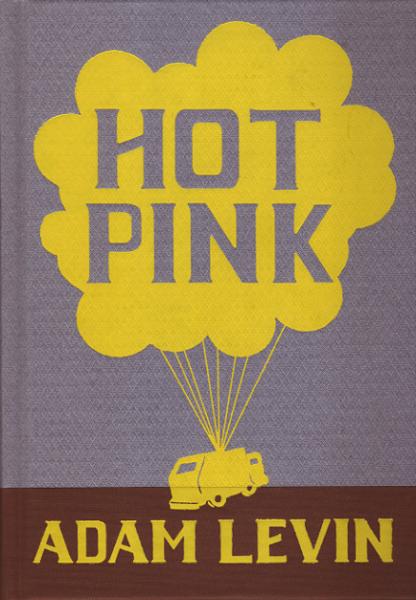
This book is one that I will probably forget before long, but it was entertaining to read and I need a light read from time to time.